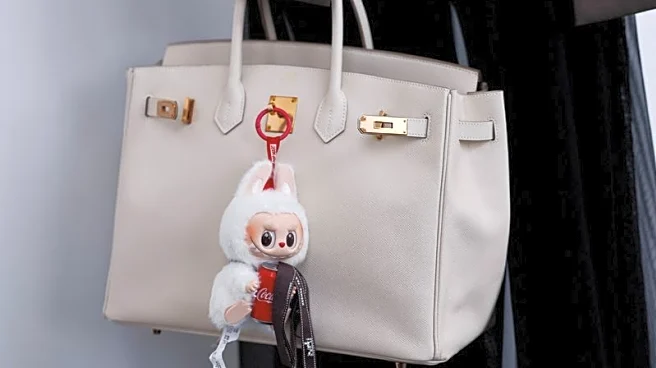By Jiaxing Li and Casey Hall
HONG KONG/SHANGHAI (Reuters) -Pop Mart chief executive Wang Ning said on Wednesday his toy company was on track to meet its targeted revenue goal of 20 billion yuan ($2.78 billion)
in 2025 and that "30 billion this year should also be quite easy."
Wang was speaking with analysts after Pop Mart announced record half-year results on Tuesday, with the makers of the ugly-cute Labubu doll reporting net profit soared nearly 400% as demand for the toys surged, particularly in higher-margin overseas markets.
Pop Mart executives also said on Wednesday that expansion in emerging markets in the Middle East, Central Europe and Central and South America was being explored.
"I think for overseas markets we're still very positive, and we also believe there's still very broad space for growth," Wang said, adding that sales from North America and Asia Pacific this year would together equal China sales in 2024.
In the United States, where Pop Mart currently has about 40 stores, Wang said the company will begin a phase of "relatively rapid store openings" over the next year or two, with 10 more U.S. shops expected to open by the end of this year.
Pop Mart's primary business is producing and selling collectible toys, many of them developed with artists and sold in "blind boxes", packages consumers buy for around $10 to $20 without knowing exactly which iteration of the toy is inside.
Labubu, a toothy-grinned member of "The Monsters" series of toys designed by Kasing Lung, has become a favourite of celebrities including Rihanna and David Beckham and has sold out around the world.
Until now most popular as a charm for handbags, Pop Mart says it will this week launch a mini version of Labubu that can be attached to phones.
The firm is also exploring options in content and entertainment, saying it is optimistic about opportunities for Pop Mart characters to star in animated films and theme park attractions, though these are not expected to contribute a large amount of direct revenue in the short term.
($1 = 7.1866 Chinese yuan renminbi)
(Reporting by Jiaxing Li in Hong Kong and Casey Hall in Shanghai; Editing by Jacqueline Wong and Kate Mayberry)









